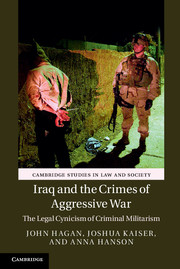Epilogue
Published online by Cambridge University Press: 05 July 2015
Summary
President Barak Obama brought Prime Minister Nouri al-Maliki to the White House in December 2011 to mark the withdrawal of American combat troops from Iraq. The president optimistically observed that “the prime minister leads Iraq's most inclusive government yet,” and that “violence remains at record lows.” Less than two years later, with violence spiking to levels not seen since 2008, the prime minister returned to Washington to ask for Apache helicopter gunships with Hellfire missiles and F-16 fighter jets. When ISIS swept into Mosul in June 2014 – targeting prisons, freeing and recruiting thousands of detainees and inmates, robbing bank vaults, and targeting genocidal attacks on selected groups – al-Maliki urgently requested more help. However, the Obama administration opted for a change of leadership.
As strategically violent and tactically disciplined as ISIS had become by 2014, it was even more apparent when Mosul changed hands how hapless the U.S.-trained Iraqi Army was as a fighting force. Iraq's Shia-dominated army was ill prepared and badly supplied, with many units simply collapsing and abandoning the battlefield. Yet ISIS could not have so easily succeeded without the acquiescence and assistance of the Arab Sunni population and the support of local militias, many of whom previously were paid by the coalition to fight al-Qaeda in Iraq insurgents during the surge and Awakening period. Local support included remnants of Saddam's Republican Guard, now known as the Naqshbandia Order and reputedly led by Izzat Ibrahim al-Douri, a high-ranking general under Saddam (the “king of clubs” in the deck of cards American troops used to identify Saddam's henchmen). These former Ba'athists had strong roots in local Arab Sunni communities, which ISIS fighters often lacked.
By 2014, local Sunni groups were motivated to assist ISIS in wresting control from al-Maliki's Shia-dominated central government. The new, more disciplined tactics of ISIS included downplaying restrictions and punishments of Sharia law among local Sunnis. This facilitated near-term alliances focused on regaining local control and expelling the Iraqi Army and Police.
- Type
- Chapter
- Information
- Iraq and the Crimes of Aggressive WarThe Legal Cynicism of Criminal Militarism, pp. 192 - 206Publisher: Cambridge University PressPrint publication year: 2015

